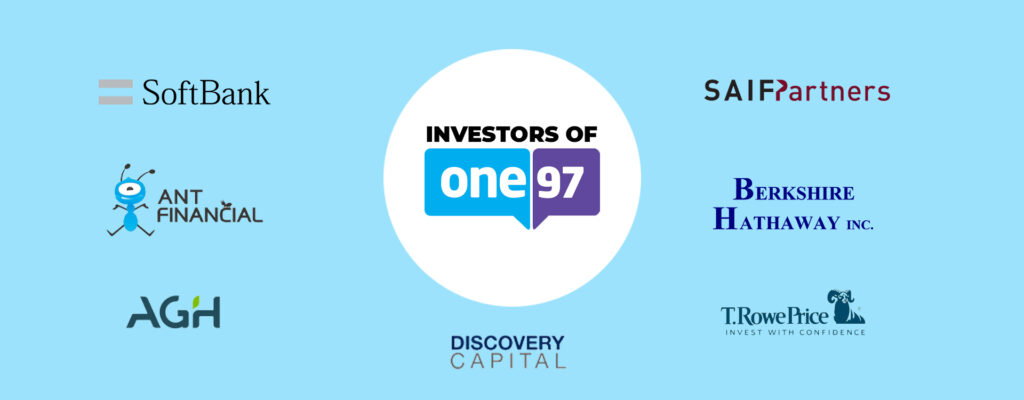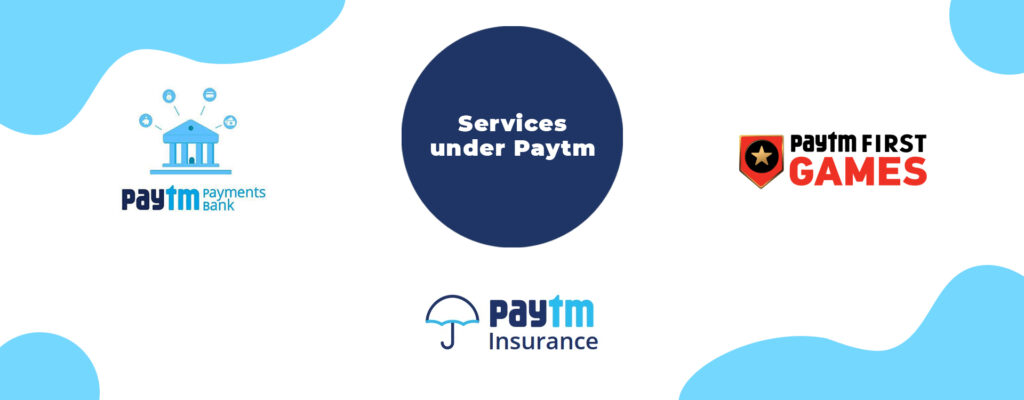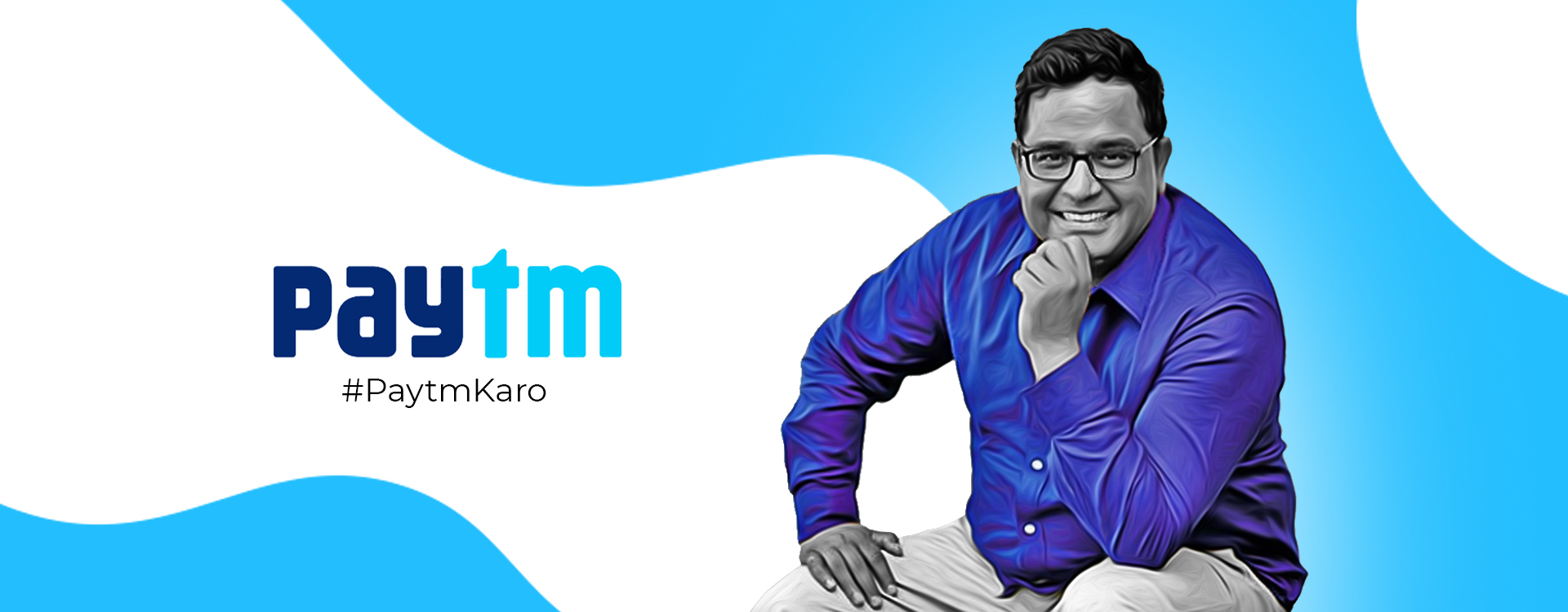If Vijay could achieve reasonable proficiency in English language at an early age, sometime in the 1990s, he would be drawing a handsome salary today as a salesman or an engineer in a multinational company. The perks would have been formidable and life pretty easy. But that was not to be. His communication handicap made him struggle and scrape for other career scapes. And today, a decade later when he started to hunt for a cosy livelihood, Vijay Shekhar Sharma reigns over a $2.35 billion net worth of business, and ranks 62nd on the 2020 Forbes India Rich List. You may have heard of the brand he owns: PayTM, India’s top e-commerce payments system and financial technology company. However, the story behind setting up this brand is less told.
‘‘
If you don't give yourself a chance, who will? If you don't take a chance, who will? And I think you should take a chance on you.
- Vijay Shekhar Sharma, Founder and CEO, Paytm
The Small Town Boy
Born in 1978, Vijay hails from a small village named Harduaganj near Aligarh. His father, the sole breadwinner for a family of six, was a principled school teacher who refused to take tuitions for he felt that true education cannot be the privilege of those who have money. Vijay studied in a Hindi medium school of Harduaganj. A topper and an exceptional student in school, he passed secondary school at an early age of 14. However, this would only be the start of a long journey to success for the young boy.
Having completed all his schooling in Hindi medium, Vijay was not proficient in English. Owning to his poor English proficiency, Vijay couldn’t sit for the IIT and other competitive exams. He finished Class XII and got admission to engineering college when he was just 15-years-old. When he came to Delhi, Vijay found it difficult to cope with English. Having come from a lower middle class family, Vijay’s only goal while joining engineering college was to finish the course and take up a job that offered Rs 10,000 as salary. That was a big enough dream for a boy like Vijay from Aligarh then.
Frontbench Student to Backbench Poet
When Vijay started attending classes in engineering during the initial days, he used to sit on the front bench as he did in school. However, that changed one day when the teacher shot him a question in English. Not being very comfortable in the language, he fumbled for the right answer. Inhibited by the incident, he shifted his seat to the back bench. He would be often bullied by classmates who ridiculed his English.
Vijay would simultaneously read two books – one in Hindi, the other in English to understand the course material. His English handicap meant he could not immediately follow what was taught in the class. This led him to spend a lot of time in the computer room, browsing the internet and dreaming about being in the Silicon Valley, the mecca of worldwide innovation. The 1990s heralded the age of the Internet. Vijay used to read newspapers and magazines to learn English. In a magazine he read about Silicon Valley. He was intrigued. He realised that instead of taking up a job, it would be better to create something in India.
College Start-up
Vijay decided he could build a company with the help of the Internet. During his third year, while most of the young and bright engineering graduates were excited about the prospect of getting placement on the campus, Vijay with one of his batch mates built a company called Xs! Corporation, a web portal that offered web-guided services, including web directories, and was also a search engine.
By then, he had learnt to code all by himself. They got seed money worth ₹20,000 from an individual angel investor, a New Mexico-based venture capital fund. They roped in two more of their batch mates into the venture. Vijay finished college in 1998. Between February-May 1999, their turnover was ₹50 lakh. He sold the company in 1999 to Living Media India, better known as the India Today Group, for half a million dollars and split the money between the four of them. The first thing Vijay did with that money was to buy a colour TV for his family. And surprised his mother by buying her saris. His father had taken loan to marry off his sisters. He was able to repay that as well. He also saved some of the money. His parents did not understand the work he was doing but they were glad he was doing well.

Incubation of One97, Paytm’s Parent company
Vijay worked for a while but soon got bored of it. He had ₹2 lakh and along with a colleague co-founded One97 Communications Ltd, a mobile value-added services company. They decided to call it One97 as that was the directory enquiry service number of BSNL. Then 9/11 happened and the business crashed. His partner left and Vijay was left with no money. In fact, Vijay had a loan of ₹8 lakh, a huge amount for a common man those days. The interest rate on the capital was a huge 24 percent, which got him into a vicious cycle of unpayable debt. He took up petty jobs to make ends meet, setting up LAN connections, delivering guest lectures and so on. He was 25-years-old then. His family wanted him to get married but no girl was willing to marry a guy with no money at that time. Hard times returned. There were days when he didn’t have money for dinner. Having two cups of tea was a perk. He couldn’t take the bus as the ticket cost ₹10, so he walked.
It would be a long walk from there, he knew, but then Vijay was not a man to give up so easily.
An Idea Called Paytm
He then took up a job as a consultant to sustain himself. With smartphones becoming popular, he decided to do something around it having always wanted to impact people’s lives. That is how Paytm, a mobile wallet, was launched in December 2010.
While India’s telecom infrastructure was improving in 2010, Vijay’s investors were not confident about the idea of a mobile-first consumer service that would cater to the masses.
When Vijay first pitched the idea of entering the payment ecosystem in front of his board, the board was not convinced, as he was talking about betting the company’s money on a non-existent market. “Some other entrepreneur would have sold the equity and started their own company. But I aspired to build a 100 year old company. I think that men and boys are different because the boys flip and sell. Men run and build legacies,” Vijay said.
He put 1 percent of his equity, which was about $2 million, on the table and said, “This is for all of you, if I waste the money that we put on the site.”
Reminiscing that time, he now feels: “There is no fun in doing what others ask you to do, the real fun is in doing what people say you can’t do.”
Paytm was born. The rest, as they say, is history.
‘‘
Some other entrepreneur would have sold the equity and started their own company. But I aspired to build a 100 year old company. I think that men and boys are different because the boys flip and sell. Men run and build legacies.
- Vijay Shekhar Sharma, Founder and CEO, Paytm
Paytm – The Revolution in Indian e-commerce
Revolutionising access to digital payments and financial services in India, Paytm is India’s leading financial services company that offers full-stack payments and financial solutions to consumers, offline merchants and online platforms. Paytm is currently available in 11 Indian languages and offers online use-cases like mobile recharges, utility bill payments, travel, movies, and events bookings as well as in-store payments at grocery stores, fruits and vegetable shops, restaurants, parking, tolls, pharmacies and educational institutions with the Paytm QR code.
Paytm launched its Paytm QR in 2015 that enables customers to simply scan with their smartphones and pay to the merchant. The Paytm QR revolutionized the entire digital payments industry and millions of people adopted it across the country, right from the local kirana stores, auto rickshaws and fast food joints to top-end hotels and restaurants. The tagline “Paytm Karo” soon became synonymous with digital payments in India.
The company is on a mission to bring half a billion Indians into the mainstream economy through payments, commerce, banking, investments, and financial services. One97 Communications Limited that owns the brand Paytm is headquartered in Noida, Uttar Pradesh. Its investors include Softbank, Ant Financial, AGH Holdings, SAIF Partners, Berkshire Hathaway,T Rowe Price, and Discovery Capital.
Vijay owns Paytm Payments Bank, country’s largest digital bank with over 58 million account holders. Working on its mission to bring un-served and under-served Indians under the formal banking system, it has made banking accessible and convenient to people across the country through innovative use of technology. It’s wholly-owned subsidiary ‘Paytm Money’ has achieved the distinction of becoming India’s biggest investment platform within its first year, and is now one of the largest contributors of new Systematic Investment Plans (SIPs) to the Mutual Funds industry; it has already received approvals to launch Stock Broking, Demat Services and National Pension System (NPS) services, and strives to continue to broaden the financial services and wealth management opportunities to the unbanked and underserved Indians.
Paytm First Games, which is another group company (a joint venture between One97 Communications and AG Tech Holdings), has quickly become India’s go-to gaming and stay-at-home entertainment option for millions of users across the country. The platform caters to all types of gamers with an exhaustive array of games for amateurs as well as esports for gaming pros.
Paytm Insurance is a wholly-owned subsidiary of One97 Communications and has secured a brokerage license from IRDAI. It offers insurance products to millions of Indian consumers across four categories including two-wheeler, four-wheeler, health and life. The company aims to simplify insurance and create a seamless, easy to understand online journey for its customers.

Life Lessons
“I have given more to my team than any amount of salary cumulatively taken in so many years,” Vijay once told an interviewer. Given his struggles, personal experiences and the tough fight he put up to achieve the success he enjoys today, he values everyone who contributes to creating his vision. People working in his company are never referred to as ‘Employees’, but as ‘Colleagues’ or ‘Teammates’. A staunch believer of God, he believes that only one amongst every ten hardworking persons succeeds to the levels he today firmly belongs in, and because of that respect he shares for every hardworking person, he doesn’t have the right to call anyone an employee or a worker.
Vijay is of opinion that life got better with mobile payments. Cash creates corruption in the economy. E-commerce can help to remove that. Looking forward to a cashless India, Vijay’s dream is to bring half a billion Indians to the mainstream economy. His dream is to build India’s first $100 billion firm, a company that would make the nation proud.
Vijay has received numerous awards and accolades in his entrepreneurial journey so far. He was recognized among the 50 Most Influential Young Indians by GQ (2017), was named to the 2017 Time 100 List of Most Influential People in the World (2017) and also won Forbes Top 40 Under 40 Award (2017) among others.
An inspiration to the future aspiring entrepreneurs in the country, Sharma’s journey shows how passion and handwork can get a person endless opportunities in life.
“If you don’t give yourself a chance, who will? If you don’t take a chance, who will? And I think you should take a chance on you.” – Vijay Shekhar Sharma




